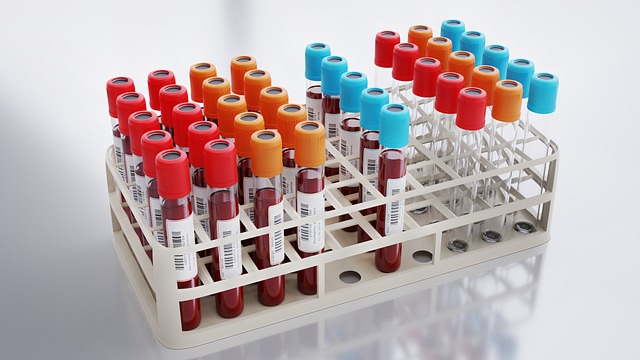Ferritin testing, alongside Cholesterol Blood Test UK, helps identify iron deficiency, a common global health issue. A simple blood test reveals ferritin levels (normal 20-150 mcg/L), aiding in diagnosing anemia and guiding treatments like dietary changes or iron supplements for symptoms like fatigue and pale skin.
In the UK, iron deficiency is a common nutritional issue, but accurately diagnosing it can be challenging. Enter ferritin level testing—a powerful tool that provides insights into your body’s iron stores. This comprehensive guide explores the role of ferritin in iron diagnosis, how it’s measured, and what the results mean. From understanding this essential protein to interpreting cholesterol blood test outcomes, we demystify the process, empowering you with knowledge about managing iron deficiency.
- Understanding Ferritin: The Key to Iron Diagnosis
- How Ferritin Levels Are Tested
- Interpreting Results: Unlocking Iron Deficiency Secrets
Understanding Ferritin: The Key to Iron Diagnosis

Ferritin, often referred to as the ‘iron storehouse’ in our bodies, is a protein that plays a crucial role in iron metabolism. It acts as a buffer, absorbing and releasing iron as needed. Understanding ferritin levels is essential for diagnosing iron deficiency, a common health issue worldwide. In the UK, where awareness about cholesterol blood tests is high, knowledge of ferritin testing adds another layer to managing overall health.
When iron levels in the body drop below normal, ferritin levels decrease accordingly. This makes it a valuable marker for detecting iron deficiency anaemia. A simple blood test measuring ferritin can provide insights into an individual’s iron status. Healthcare professionals often recommend this test as part of their routine assessment, especially for individuals with symptoms like fatigue, pale skin, or shortness of breath—all potential indicators of iron deficiency.
How Ferritin Levels Are Tested

Ferritin level testing is a straightforward process that typically involves taking a blood sample. This small sample is then analysed in a laboratory to measure the amount of ferritin present in your blood. Ferritin is a protein that stores iron in the body, and its levels can provide valuable insights into your iron status. In the UK, a cholesterol blood test often includes a check for ferritin as part of a comprehensive assessment.
The procedure for testing ferritin levels is similar to that of a standard blood test. A healthcare professional will take a sample of your blood, usually from a vein in your arm, and send it off to a laboratory for analysis. The results are then interpreted by a doctor who can use them to diagnose iron deficiency or rule it out, alongside other potential health issues.
Interpreting Results: Unlocking Iron Deficiency Secrets

Interpreting ferritin levels is key in diagnosing iron deficiency, offering valuable insights into an individual’s iron stores. A simple cholesterol blood test UK clinics often offer can provide critical information. Normal ferritin levels typically range between 20-150 micrograms per litre (mcg/L) of blood. If results fall below 20 mcg/L, it strongly suggests a potential iron deficiency. Levels between 20-40 mcg/L may indicate marginal deficiency, while consistently low ferritin levels can point to chronic issues.
Understanding these results is crucial for healthcare professionals. Low ferritin levels often correlate with symptoms like fatigue, weakness, and pale skin—common signs of iron deficiency anaemia. By interpreting these test outcomes, doctors can initiate appropriate treatment, such as dietary changes or iron supplementation, to restore healthy iron levels and alleviate associated symptoms.
Ferritin level testing plays a pivotal role in diagnosing iron deficiency, offering a crucial insight into an individual’s overall iron status. By understanding how ferritin functions and interpreting test results accurately, healthcare professionals in the UK can effectively navigate this diagnostic process. Just as a cholesterol blood test helps assess cardiovascular health, ferritin levels provide a window into the body’s iron reserves, enabling timely interventions to alleviate deficiency-related symptoms and promote optimal well-being.
